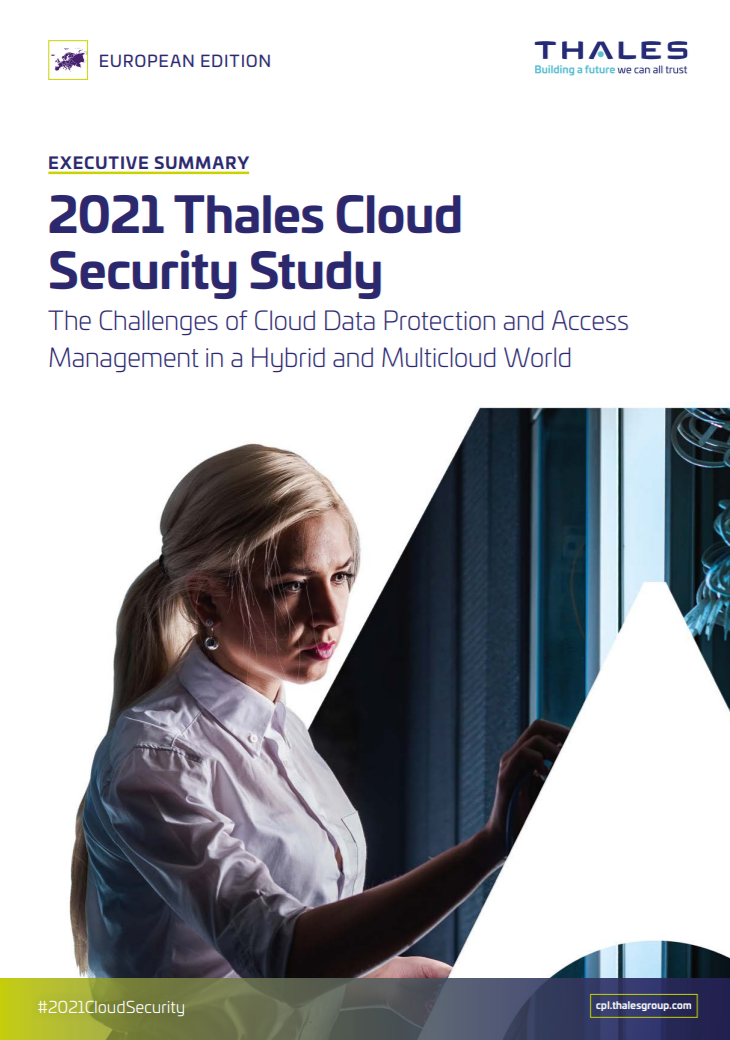Hackers publish Vestas data following cyber attack
The move suggests the company didn’t comply with the hackers' ransom demands


Hackers behind last month’s cyber attack on Vestas, the world’s largest wind turbine manufacturer, have published a portion of the compromised data online.
That's according to a statement published by the company, in which it advised customers and business partners to “stay vigilant” as there's a possibility that their personal data may be misused.
The stolen data includes information embedded in identification documents such as passports, birth certificates, work permits, and driver’s licenses. In some cases, the cyber criminals managed to obtain social security numbers, medical certificates, injury reports, and bank account information.
Vestas stated that “not all employees and business partners of Vestas have been affected by the cyber security incident and the majority of the compromised personal data is not of a sensitive nature”.
This includes information embedded in CVs, such as names and contact details, emails, phone numbers, country of residence, education, and professional skills, as well as company documents including contracts and salary information.
Vestas said that it will notify the victims of the breach “if it is assessed that this is appropriate given the risk to such individuals”.
RELATED RESOURCE

2021 Thales cloud security study
The challenges of cloud data protection and access management in a hybrid and multi cloud world
IT Pro has reached out to the company for further information but hadn't received a response at the time of publication.
Get the ITPro daily newsletter
Sign up today and you will receive a free copy of our Future Focus 2025 report - the leading guidance on AI, cybersecurity and other IT challenges as per 700+ senior executives
The attack, which took place on 19 November, forced Vestas to shut down its IT systems for two days “as a precaution”. The company has not named the hackers behind the attack, nor whether the cyber attack involved ransomware.
However, the news of data being published online suggests that that the company didn't comply with the hackers' ransom demands.
This is in contrast to a similar incident involving US natural gas provider Colonial Pipeline, which saw the company comply with the DarkSide hacking group’s demands and pay the $4.4 million (£3.1 million) ransom. CEO Joseph Blount said that he was aware that the decision was “highly controversial”, yet added that “it was the right thing to do for the country”.
“I didn't make it (the decision) lightly. I will admit that I wasn't comfortable seeing money go out the door to people like this,” he told the Wall Street Journal in May.
Having only graduated from City University in 2019, Sabina has already demonstrated her abilities as a keen writer and effective journalist. Currently a content writer for Drapers, Sabina spent a number of years writing for ITPro, specialising in networking and telecommunications, as well as charting the efforts of technology companies to improve their inclusion and diversity strategies, a topic close to her heart.
Sabina has also held a number of editorial roles at Harper's Bazaar, Cube Collective, and HighClouds.
-
 Should AI PCs be part of your next hardware refresh?
Should AI PCs be part of your next hardware refresh?AI PCs are fast becoming a business staple and a surefire way to future-proof your business
By Bobby Hellard Published
-
 Westcon-Comstor and Vectra AI launch brace of new channel initiatives
Westcon-Comstor and Vectra AI launch brace of new channel initiativesNews Westcon-Comstor and Vectra AI have announced the launch of two new channel growth initiatives focused on the managed security service provider (MSSP) space and AWS Marketplace.
By Daniel Todd Published
-
 ‘Phishing kits are a force multiplier': Cheap cyber crime kits can be bought on the dark web for less than $25 – and experts warn it’s lowering the barrier of entry for amateur hackers
‘Phishing kits are a force multiplier': Cheap cyber crime kits can be bought on the dark web for less than $25 – and experts warn it’s lowering the barrier of entry for amateur hackersNews Research from NordVPN shows phishing kits are now widely available on the dark web and via messaging apps like Telegram, and are often selling for less than $25.
By Emma Woollacott Published
-
 Healthcare systems are rife with exploits — and ransomware gangs have noticed
Healthcare systems are rife with exploits — and ransomware gangs have noticedNews Nearly nine-in-ten healthcare organizations have medical devices that are vulnerable to exploits, and ransomware groups are taking notice.
By Nicole Kobie Published
-
 Alleged LockBit developer extradited to the US
Alleged LockBit developer extradited to the USNews A Russian-Israeli man has been extradited to the US amid accusations of being a key LockBit ransomware developer.
By Emma Woollacott Published
-
 February was the worst month on record for ransomware attacks – and one threat group had a field day
February was the worst month on record for ransomware attacks – and one threat group had a field dayNews February 2025 was the worst month on record for the number of ransomware attacks, according to new research from Bitdefender.
By Emma Woollacott Published
-
 CISA issues warning over Medusa ransomware after 300 victims from critical sectors impacted
CISA issues warning over Medusa ransomware after 300 victims from critical sectors impactedNews The Medusa ransomware as a Service operation compromised twice as many organizations at the start of 2025 compared to 2024
By Solomon Klappholz Published
-
 Warning issued over prolific 'Ghost' ransomware group
Warning issued over prolific 'Ghost' ransomware groupNews The Ghost ransomware group is known to act fast and exploit vulnerabilities in public-facing appliances
By Solomon Klappholz Published
-
 The Zservers takedown is another big win for law enforcement
The Zservers takedown is another big win for law enforcementNews LockBit has been dealt another blow by law enforcement after Dutch police took 127 of its servers offline
By Solomon Klappholz Published
-
 There’s a new ransomware player on the scene: the ‘BlackLock’ group has become one of the most prolific operators in the cyber crime industry – and researchers warn it’s only going to get worse for potential victims
There’s a new ransomware player on the scene: the ‘BlackLock’ group has become one of the most prolific operators in the cyber crime industry – and researchers warn it’s only going to get worse for potential victimsNews Security experts have warned the BlackLock group could become the most active ransomware operator in 2025
By Solomon Klappholz Published